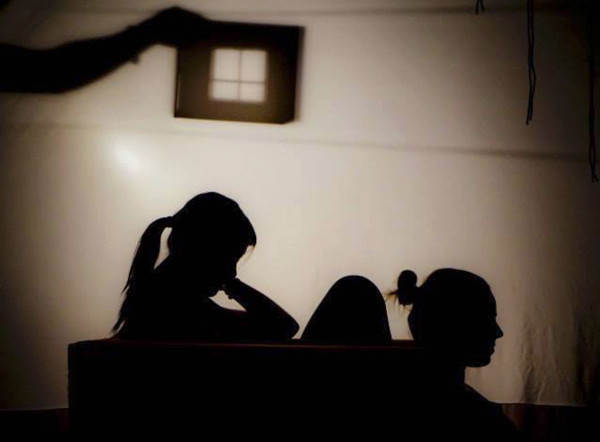
At the opposite end of the spectrum from the hammer-wielding hard-core intensity of A Language for Dogs that this company brought last year, this piece is a delicate two-hander about young women having to make the tough decisions that will initiate their adult lives - or maybe not, depending on which way they go.
The emotional difficulty of their choices puts great pressure on their friendship, but it survives. That's about it for the story, which is slight and could be deepened by giving each character an awareness of the political dimension of their predicament. (I know, I know, it is hateful to complain about what a play is not, instead of focusing on what it actually is, but this is the Fringe where things come for R&D so I'm allowed.)
One woman is a prospective environmental scientist but the value of her possible contribution as a researcher does not seem to weigh with her.
Her friend and room mate has family in China, and mentions her fears for her father's safety during the "riots" - a reference that had me baffled until I found in the program the information that the actress playing this role hails from Urumqi. This fact also explained an image that had puzzled me during the performance.
However, this character seems oblivious to the political implications of her father's choice to return to this place of great tension between the Han majority and the Uighur minority. Or is she suppressing something which emerges in that puzzling image?
Setting that aside, it is fascinating to see Outrun the Mill carrying their formal investigations into a whole new area. What they have done here is to set up a double shadow-play structure.
One of the women is an artist whose work is presented to us as stencils on a light table. The silhouette of the stencils is then back-projected onto a scrim so that we see the drawings. The same scrim serves as a flat, behind which the actors go when they turn in for the night, and on which images from their dreams are projected.
The effect is to make the imagination itself a third character, as it were. This obviously has tons of potential and OTR explores this realm with great finesse, floating fish and tigers and all manner of curious things in the dream space, accompanied by spare, precise sounds.
Consequently we watch the two women wrestle with their decisions both consciously in the day, and unconsciously but imaginatively, at night. The piece is a little unbalanced still, because the nightwork becomes more engaging than the daywork, but clearly both are need to accentuate the other.
This is brave and skilful work from a very interesting collective. Long may they run!
You must be logged in to comment.
There are no upcoming events right now.
Why not post one?